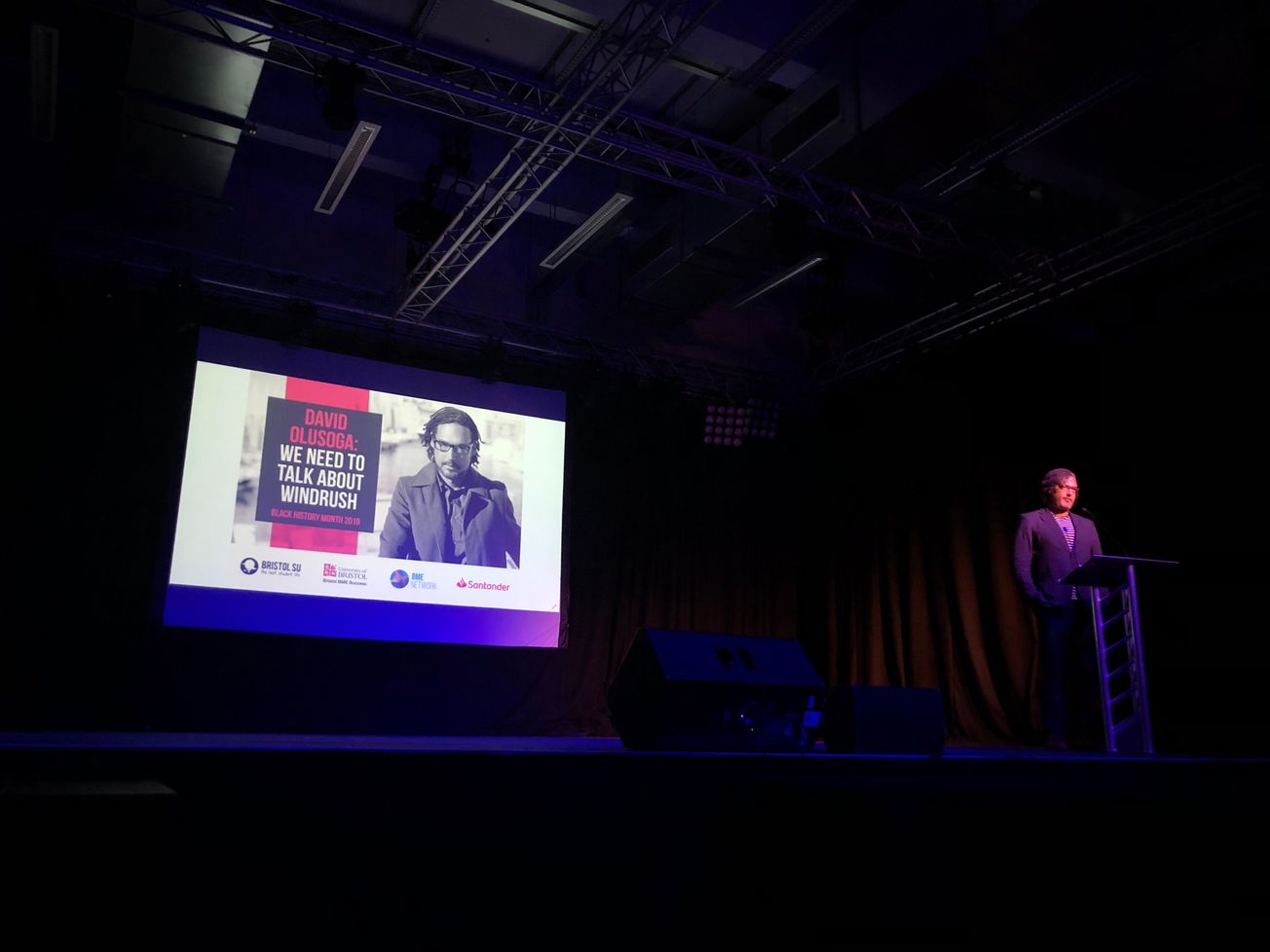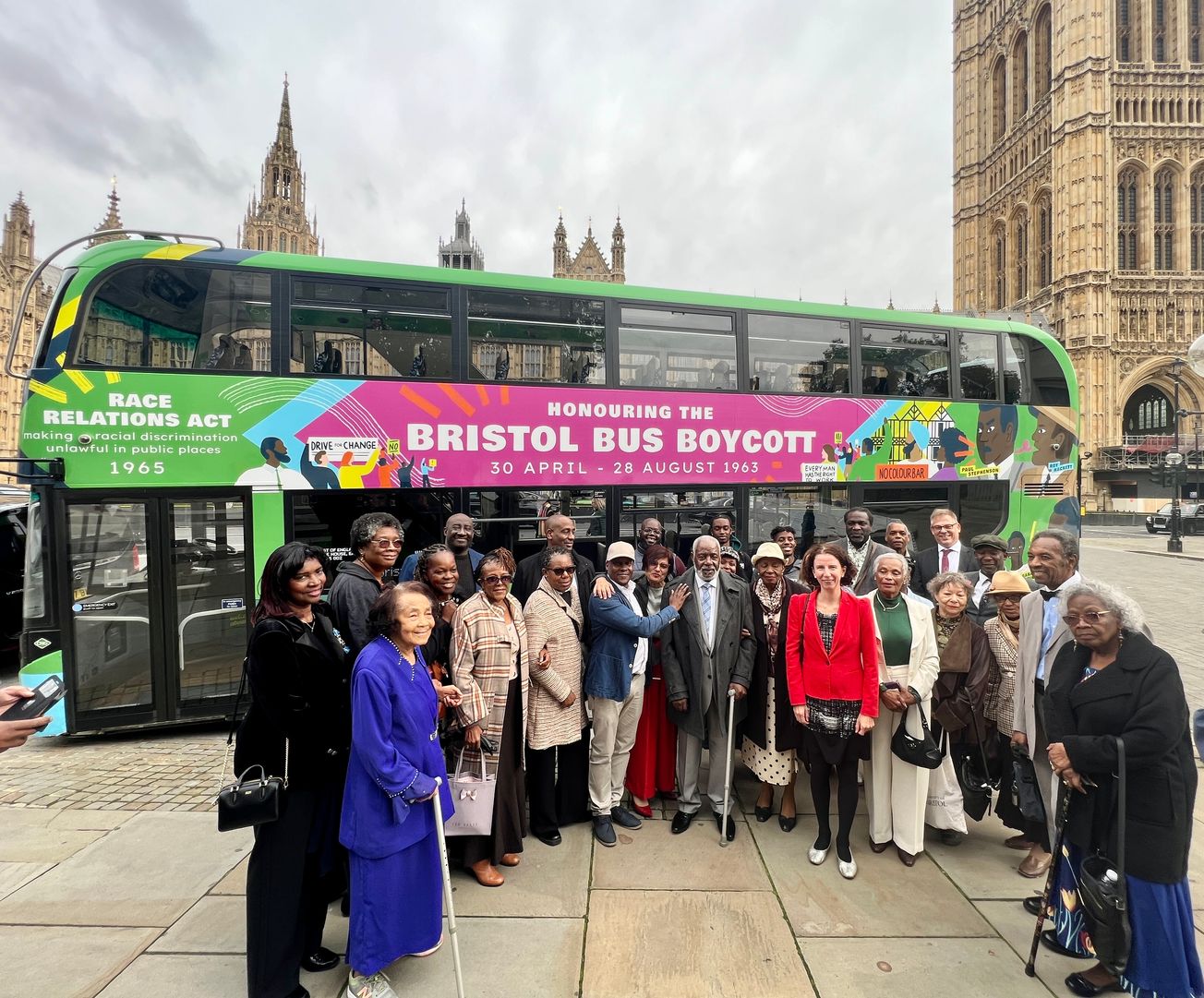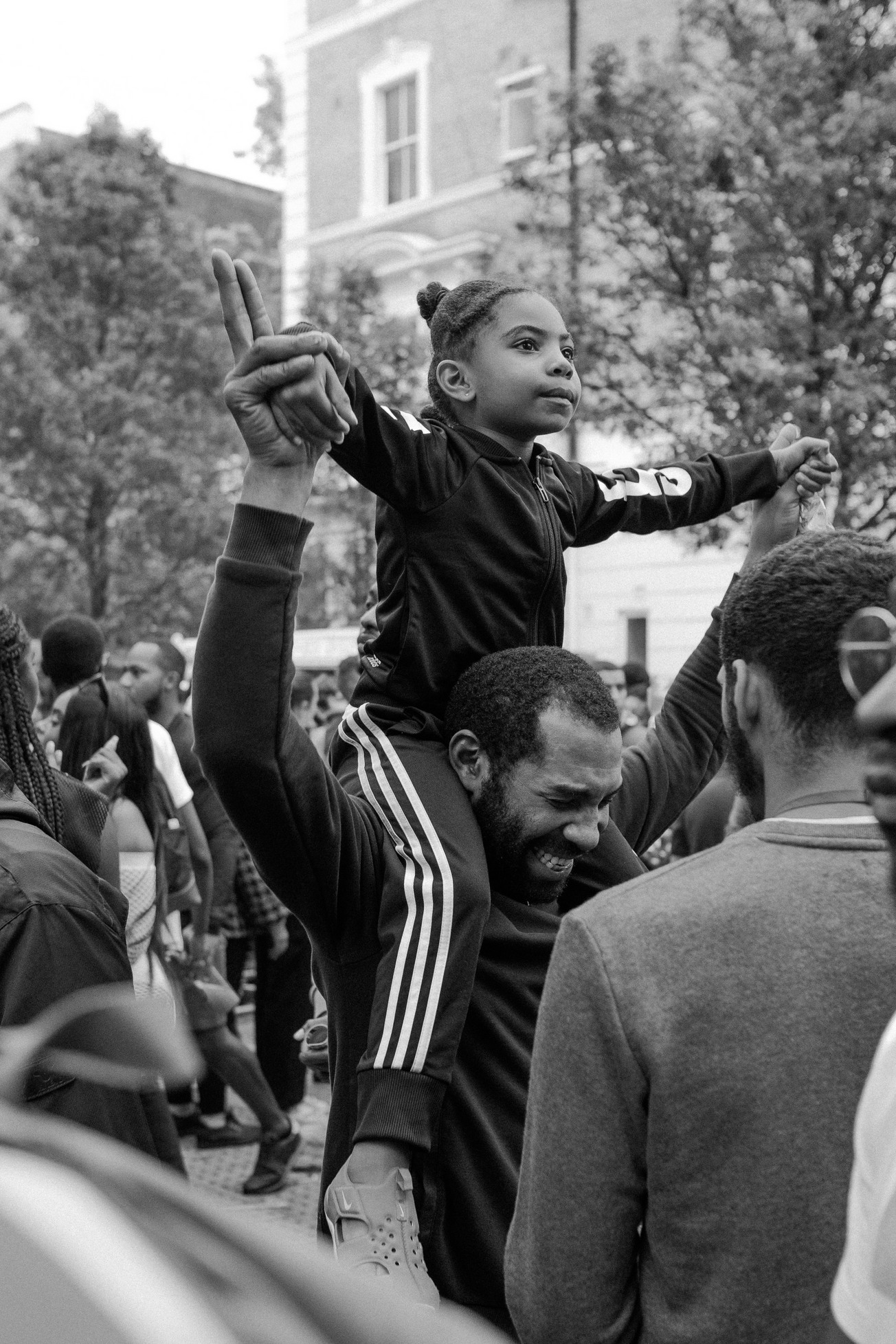By Robin Connolly, Features Editor
David Olusoga talks politics, Windrush and racial zoning in Bristol.
At the end of our conversation, a polite, although (self-confessed) angry David Olusoga stated that, to him, ‘the function of Black History Month is for everyone to celebrate it, and for it to be seen as a shared history. To be recognised, celebrated but also lamented – because some of it is wonderful, but some of it is absolutely tragic.’
This was a theme that recurred throughout not only our interview, but his talk itself – the importance of understanding, discovering and sharing black histories of Britain. His clear expertise, but also care, about the subject of the Windrush scandal came across as he spoke about the relocation of hundreds of thousands of people from the Caribbean after World War Two and the mistreatment they and their descendants faced from the British government.
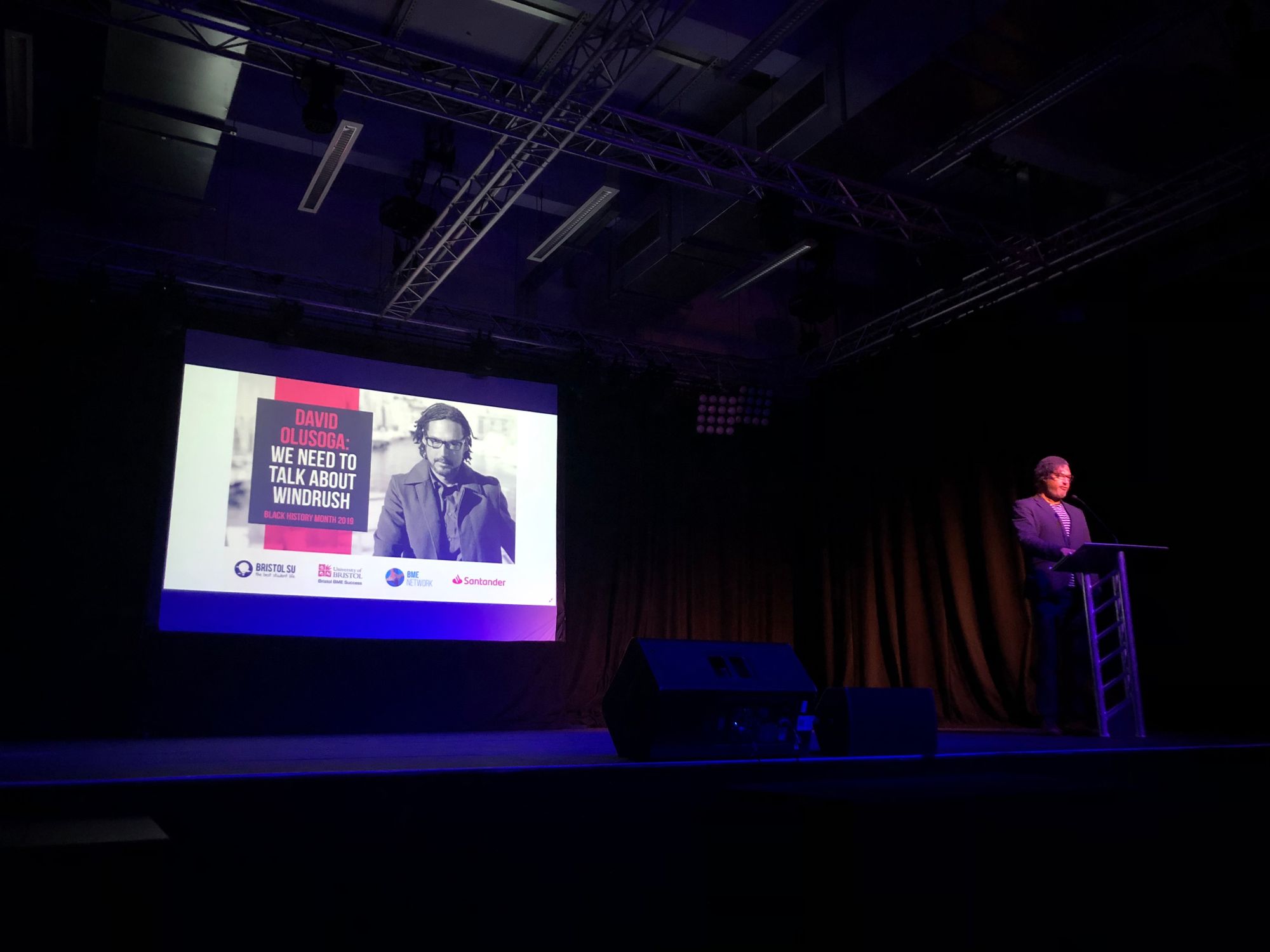
The Windrush Scandal saw the discovery of one of the greatest mistakes of recent history. The Conservative Government’s 2014 policy of ‘Hostile Environment’ removed the exemption made for Commonwealth Members in the 1971 Immigration Act. In 2018 it was found that on failure to provide extensive documentation of residence in the UK, at least 83 people had been wrongly deported, while others were detained or faced other injustices.
I asked how Olusoga had found Black History Month this year. ‘I think Black History Month has been inevitably affected by the Windrush Scandal. Last year was meant to be the great anniversary year – with the 70th anniversary. And what we had instead was people feeling the shock and the pain of the Windrush Scandal.’
The Windrush Scandal saw the discovery of one of the greatest mistakes of recent history
He spoke to me about how one of the effects of the Windrush has been the creation of a history which is, understandably, raw and painful for many of those connected to it. ‘I’m spending this Black History Month being very aware that the message that I’m delivering about the history behind the Windrush Scandal is very difficult for an awful lot of people, for very good reasons,’ he explained.
Despite there being ‘other, better, less disastrous ways’ of these histories becoming known, he seemed somewhat optimistic that the Windrush Scandal has uncovered ‘who that generation were’ and ‘what they went through.’ He stressed the importance of the fact that this has caused people to ‘know this history now better than they used to.’
His sense of positivity grew as he went on to praise ‘the fact that we’re having these discussions, that millions of people feel the way they do about these issues, that university campuses are full of people who are fighting for critically important issues, that the attitudinal studies suggest your generation doesn’t see things the way my parent’s generation or my generation did.’ He even furthered this with ‘I think there’s loads of reasons for optimism’.
However, as our conversation moved on, he also made it clear that at the moment ‘nothing is guaranteed’ and that ‘everything is up in flux.’ He expressed a disappointment in politics, that ‘we have a British prime minister who used the word ‘Pickaninny’ – the same word Enoch Powell used in his Rivers of Blood Speech in 1968’. That there is an American President in power who ‘will call members of the Klu Klux Klan very fine people’.
He highlighted how he believes Britain has an institutionalised problem with structural racism, which will take a long time to shift. ‘We have to challenge those ideas at their root, and that’s a very, very difficult process. It took centuries to build these ideas, it’s going to take us a long time to identify them, challenge them and mitigate their effects.’
the attitudinal studies suggest your generation doesn’t see things the way my parent’s generation or my generation did David Olusoga
Knowing that Olusoga is a Bristol resident, I was intrigued to find more about an article he wrote, where he stated that ‘the socioeconomic and racial zoning of Bristol is worthy of the Deep South.’ When I read this, I confess I felt immediately - defensive - and perhaps even affronted. Yet, when I asked him to elaborate on what he meant, I began to realise that he might just be right.
‘I think Bristol, in my opinion, is more divided, more zoned than anywhere. It’s partly geography, because the city exists on this huge topographical range. I think it’s getting better, but when I moved to Easton I lived in a multicultural area. When I moved to Southville, suddenly I didn’t.’
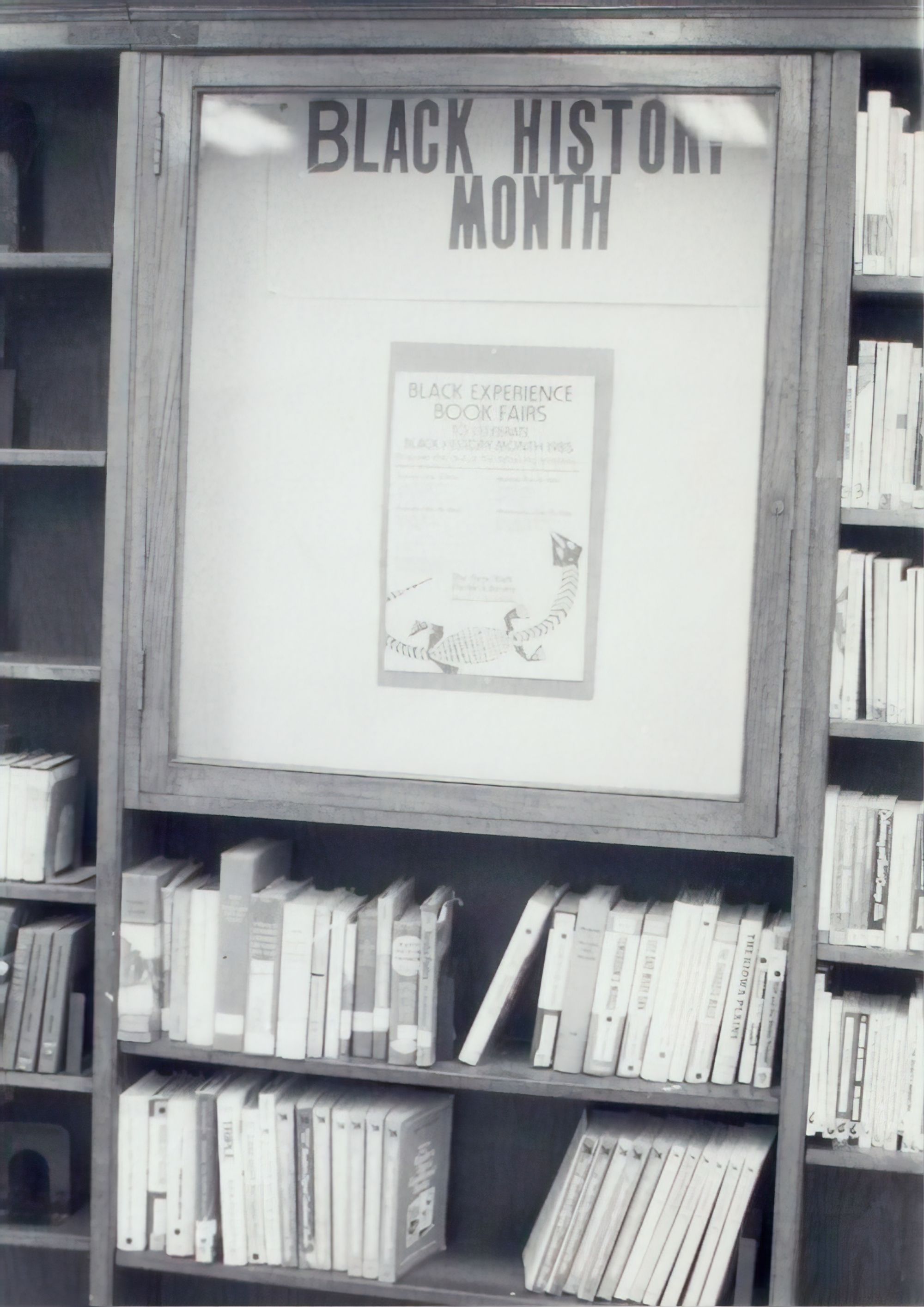
It turns out that he’s not wrong. Looking at the census from 2011, the data agrees with what he’s saying. There is a considerably higher proportion of people of Afro-Caribbean ethnicity living in Lawrence Hill than in any other area of the city – on the DataShine interactive census map, it is obvious that the city contains pockets of what Olusoga defined as ‘racial zoning’.
‘It was stark, absolutely. When I lived in Easton and worked at the BBC on Whiteladies road, I would see no black people all day when I was at work and when I drove to Easton, every second person looked like me.’
I think Bristol, in my opinion, is more divided, more zoned than anywhere David Olusoga
He went on to explain that ‘one of the problems is – we’re used to it, so we don’t see it. People get defensive. Again, it’s that defensiveness. I’ve said this out of a belief that Bristol is a wonderful city. I wouldn’t live here; I don’t have to live here – my business is in London. It would be easier if I didn’t live here – much more convenient in many ways. But I think it needs to address these issues.’
We agreed that hopefully, my generation has the capacity to take these issues on, through shared conversation and the reclamation of English identities. Although – as Olusoga aptly noted, ‘but then you’ve also got to save the world, so you’re pretty busy.’
Busy indeed.
Featured: Epigram / Robin Connolly
Did you go to David's talk? Tell us your thoughts in the comments!

